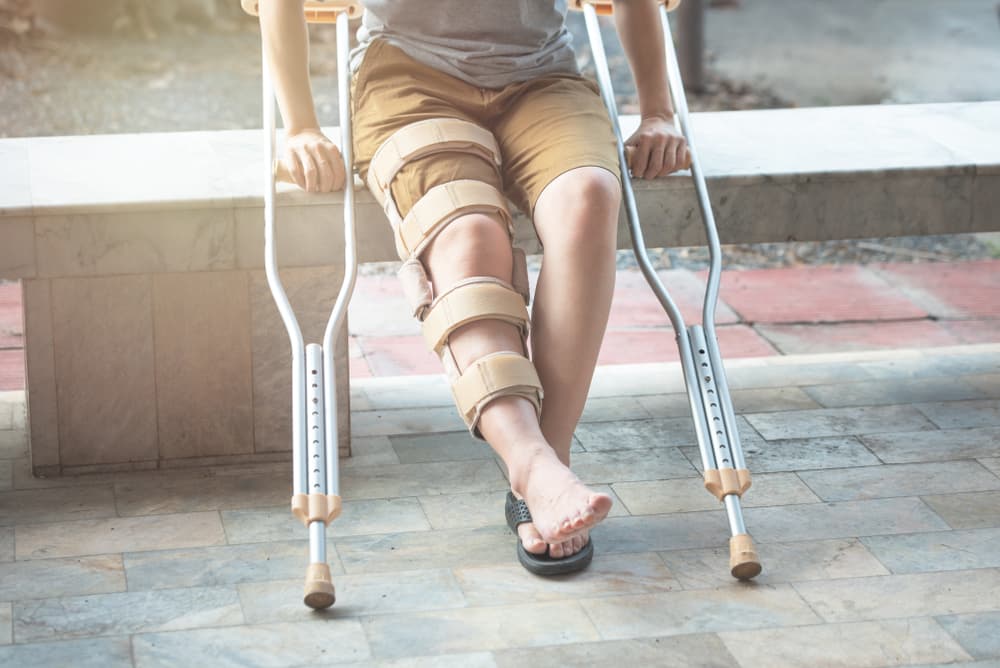How Can I Get Temporary Partial Disability Benefits After a Workplace Injury?

A physically, mentally, and financially daunting workplace injury may leave you unable to carry out your regular duties or earn your usual income, which can cause considerable stress.
Temporary partial disability (TPD) benefits come in here. They offer financial assistance for injured workers who can work in a limited capacity while they recover. Your Indianapolis workers’ compensation lawyer will know the key differences between TPD and other workers’ compensation benefits, and will apply for and obtain appropriate compensation for you while you recuperate from your injury.
Who Qualifies for TPD Benefits?
A work-related injury can significantly affect your ability to perform your regular work duties and earn a living. TPD benefits provide financial assistance while you recover and gradually return to work.
To qualify for these benefits, you’ll need to meet three basic criteria:
- Work-related injury or illness: You must have suffered the injury or illness while performing your job or as a direct result of your employment. You need documentation of the incident and a clear description of the circumstances surrounding the injury.
- Diagnosis by a medical professional: You must have a diagnosis from a licensed medical professional confirming your injury or illness prevented you from performing your regular job duties fully. An accurate diagnosis and record of your treatment can establish your eligibility and ensure you receive the appropriate level of TPD benefits.
- Temporary loss of earning capacity: Your injury or illness must have resulted in a temporary decrease in your ability to earn your usual income. A comparison of your pre-injury and post-injury earning potential typically establishes this.
Your personal injury lawyer can collect evidence and document the results of your workplace injury to demonstrate how you met these eligibility criteria.
How Long Do TPD Benefits Last?
The duration of TPD benefits varies depending on several factors, including the severity of your injury, your recovery progress, and any state law limitations that may apply. Your attorney understands the specific rules and regulations governing TPD benefits in your jurisdiction and will ensure that you receive benefits for the appropriate length of time.
Factors Affecting the Duration of Benefits
If you qualify for TPD, these factors will influence the duration of your benefits:
- The severity of your injury: The more severe your injury, the longer you may require TPD benefits. The nature of your job and the physical demands it places on your body will also influence the duration of benefits.
- Your recovery progress: Medical evaluations will be crucial in tracking your recovery and determining how long you will need TPD benefits. Your healthcare provider can advise when your recovery allows you to return to work.
- State laws: Each state has specific rules and regulations governing the duration and calculation of TPD benefits. California, for example, stops TPD after 104 weekly payments.
Your lawyer will help you get maximum TPD benefits and ensure you receive them for the duration you deserve.
Calculation of TPD Benefits
TPD benefits compensate injured workers for their loss of income due to their temporary inability to perform their regular job duties fully. The calculation of these benefits can vary depending on your jurisdiction and the specific laws governing workers’ compensation.
In most cases, TPD benefits are a calculated percentage of your average weekly pay before the injury. This percentage will depend on the specific laws of your jurisdiction, but it is generally a portion of your lost income while you recover.
Returning to Work
One of the primary objectives of TPD benefits is to support your recovery and help you return to work as soon as you are medically able.
Returning to Work as Soon as Medically Possible
TPD benefits aim to encourage injured workers to return to work as soon as they are medically cleared. Your medical professionals and attorney can help you understand when it is appropriate to return to work and how to do so safely.
Modified Duties or a New Job
You may be able to return to work performing modified duties or in a new role that accommodates your physical limitations during your recovery. Your employer, medical professionals, and an attorney can work together to determine what modifications are necessary and appropriate for your situation.
Vocational Rehabilitation
Injured workers may require additional support to help them return to work or find a suitable alternative job. Vocational rehabilitation services can be crucial in facilitating this process and ensuring injured employees can continue to support themselves and their families.
These services include:
- Job training: Vocational rehabilitation programs often include training to help injured workers develop new skills and improve their employability. This can be especially important if your injury prevents you from returning to your previous occupation.
- Job placement assistance: These programs help with job searching, resume preparation, and interview coaching to increase your chances of securing suitable employment.
- Support services: Vocational rehabilitation services may also offer support with transportation, childcare, or other needs related to your employment. This can help reduce the barriers to returning to work and ensure you have the necessary resources to succeed in your new role.
Vocational rehabilitation services can help you transition back to work more effectively, which can reduce the duration of your TPD benefits and the financial effect of your injury.
Tackle TPD Benefits With the Help of an Attorney

TPD benefits are an essential aspect of workers’ compensation that provide financial support to injured workers during their recovery. Factors such as determining eligibility, calculating benefits, facilitating a return to work, and navigating disputes or appeals can be complex and challenging. Injured workers must understand their rights and the benefits available to them through TPD.
Legal representation from an experienced workers’ compensation attorney can provide invaluable assistance, ensuring you receive the support you need during your recovery and ultimately return to the workforce. If you’ve experienced an injury that limits your ability to work, contact an attorney to discuss your situation.

